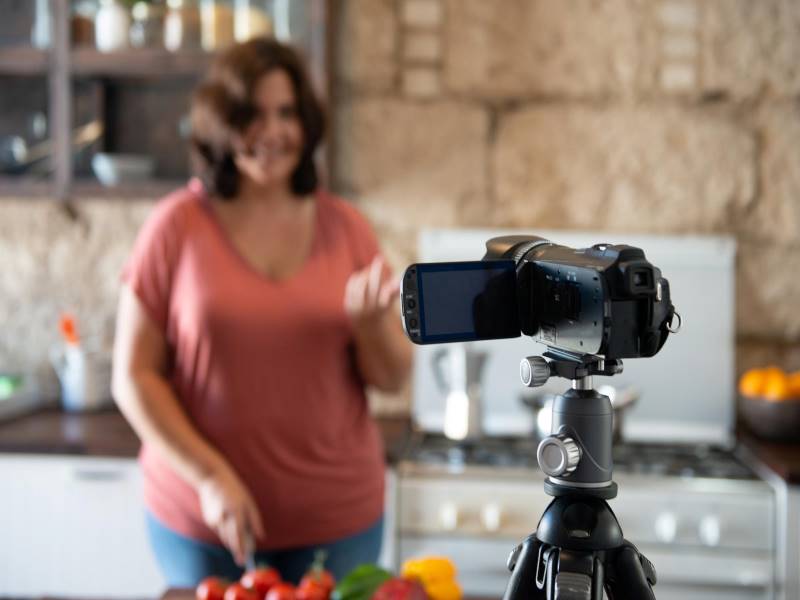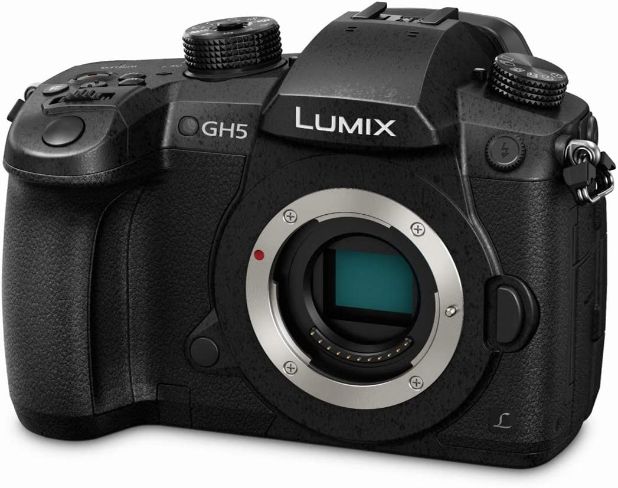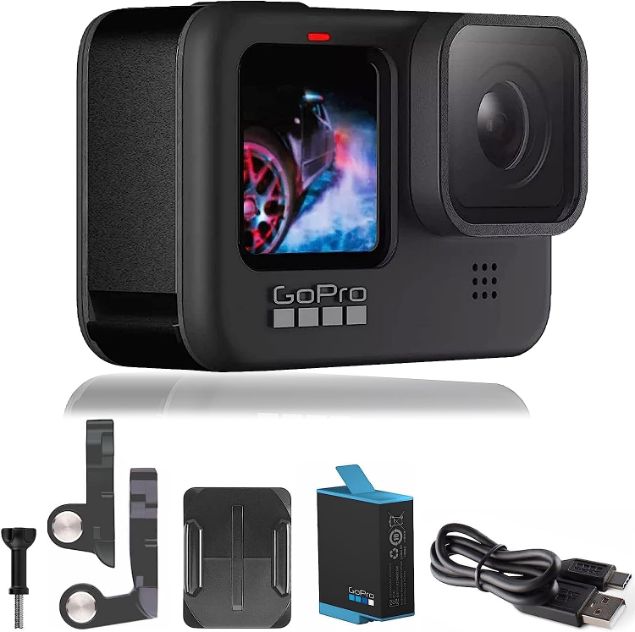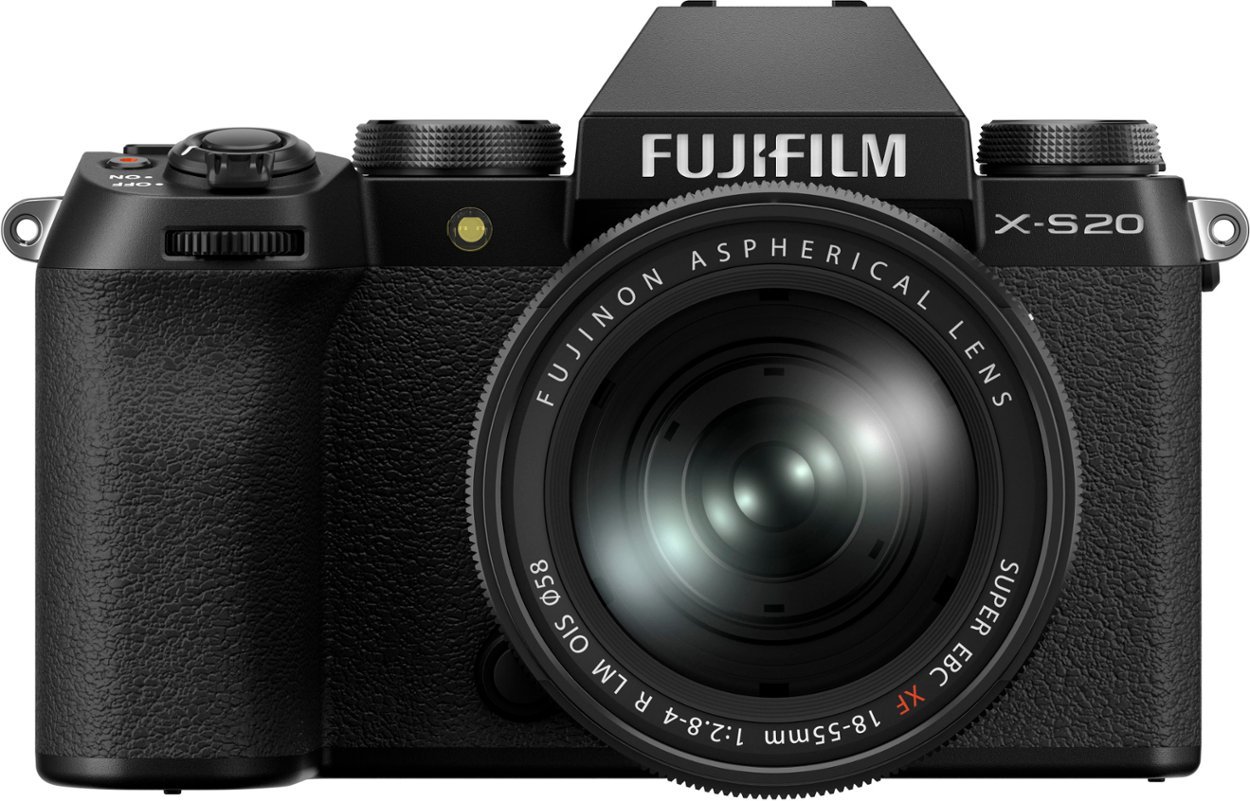
In today’s digital age, vlogging has become a popular means to share experiences, educate, and entertain audiences. Having the correct camera is essential for creating high-quality content, whether you are a novice or an established vlogger. With so many options on the market, deciding on the finest vlogging camera might take much work. In this article, we’ll walk you through choosing the best camera for your vlogging needs, so you can capture spectacular visuals and captivate your audience.
Understanding the Importance of a Vlogging Camera
The essential instrument for capturing your vlogs is a vlogging camera. It is critical to provide high-quality pictures, clear audio, and a variety of other elements that enhance your content. While smartphones have adequate camera capabilities, a dedicated vlogging camera can dramatically improve the production value of your videos.
Factors When Choosing a Vlogging Camera
Budget and Price Range
The first step in purchasing a vlogging camera is determining your budget. It’s critical to balance the qualities you want and the price you’re willing to spend. Consider your long-term ambitions and buy a camera to grow with you on your vlogging adventure.
Video Quality and Resolution
Your vlogs’ video quality is critical for attracting and retaining visitors. Look for cameras that support at least Full HD (1080p) resolution. However, the 4K resolution is becoming more popular due to its astounding clarity. Higher resolution gives for more editing options and a more immersive watching experience.
Low-Light Performance
Vlogging entails photographing in a variety of lighting settings frequently. An excellent low-light performance camera ensures that your movies seem clean and colorful even in low-light situations. Look for cameras with larger sensor sizes and lower aperture values to catch more light.
Portability and Size
As a vlogger, you’ll carry your camera wherever you go. Size and portability are crucial considerations. Select a camera that is lightweight, compact, and simple to use. This will make mobile vlogging more convenient and pleasant.
Image Stabilization
Viewers can be turned off by shaky footage. Image stabilization technology aids in reducing camera shake and guarantees smooth and consistent footage. Optical image stabilization (OIS) and electronic image stabilization (EIS) are standard stabilization methods to look for in a vlogging camera.
Audio Quality
Audio that is clear and of excellent quality is vital for engaging your audience. Because built-in microphones in cameras frequently have restrictions, consider using an external microphone. Look for cameras with microphone ports or compatibility with external audio recorders to capture professional-grade sound.
Flip Screen or Articulating Screen
A flip or articulating screen is helpful for vloggers because it allows you to view yourself while recording. It will enable you to correctly frame your photographs, manage your composition, and ensure you are always in focus. This functionality is very beneficial for solitary vloggers.
Connectivity Options
Having a variety of connectivity choices makes transferring and sharing your vlogs easier. Look for cameras that support Wi-Fi, Bluetooth, or NFC. These functions allow you to transfer files rapidly to your computer or smartphone for editing and sharing on social networking networks.
Battery Life
A camera with a long battery life allows you to record footage without interruptions. Consider cameras with long-lasting batteries or charging through USB for easy charging.
Additional Features and Accessories
reflect on other features such as built-in filters, configurable settings, manual controls, and compatibility with a broad range of lenses, depending on your vlogging style. Consider extras such as tripods, external lighting, and camera cases to enhance your vlogging experience.

Different Types of Camera for Vlogging
When selecting a vlogging camera, it’s critical to understand the many types available and their distinct capabilities. The following are the most common types of cameras used for vlogging:
DSLR Cameras
DSLR cameras are well-known for their portability and high image quality. Interchangeable lenses, manual settings, and advanced functions are available. While heavier than other options, DSLRs are preferred by professional vloggers who value image quality and creative control.
Mirrorless Cameras
Mirrorless cameras are popular among vloggers due to their small size and high image quality. They have interchangeable lenses, like DSLRs, but no mirror system. Mirrorless cameras are smaller and more portable, making them ideal for on-the-go vlogging.
Point-and-Shoot Cameras
Point-and-shoot cameras are small, light, and simple to use. They are popular among newbie vloggers since they are built for ease and convenience. While they have significant limits regarding image quality and manual control, they are simple to use and inexpensive.
Action Cameras
Action cameras are compact, rugged, and designed for outdoor use. They are popular among vloggers who post about outdoor activities, sports, or travel. Action cameras are well-known for their toughness, wide-angle lenses, and water resistance. They are particularly adept at recording dynamic and action-packed footage.
Smartphone Cameras
With advances in smartphone camera capability, many vloggers prefer to use their cell phones as primary vlogging cameras. Smartphone cameras provide portability, ease, and high image quality. They have features such as optical image stabilization, several lenses, and advanced video recording choices.
Best Camera For Vlogging
Now that we’ve covered the criteria to consider and the best cameras for vlogging available, let’s look at some of the best vlogging camera on the market:
Canon EOS M50 Mark II
The Canon EOS M50 Mark II is a mirrorless camera with excellent image quality and adaptability. It has a 24.1-megapixel APS-C sensor, 4K video capture, a flip-out touchscreen, and good focusing. Because of its small size, excellent capabilities, and compatibility with a wide range of lenses, it is a popular choice among vloggers.
Sony ZV-1
The Sony ZV-1 is a small vlogging camera built primarily for content creators. It has a 1-inch 20.1-megapixel sensor, 4K video recording capability, a flip-out touchscreen, and superior autofocus technology. The ZV-1 is praised for its low-light capabilities, built-in microphone with wind noise reduction, and ability to capture professional-quality films.
Panasonic Lumix GH5
The Panasonic Lumix GH5 mirrorless camera is popular among professional vloggers and filmmakers. It features a 20,3-megapixel Micro Four Thirds sensor, 4K video recording at 60 frames per second, dual image stabilization, and a weatherproof exterior. The GH5 has a lot of manual options and configurable settings, and it works with many lenses.
GoPro Hero9 Black
The GoPro Hero9 Black is an action camera documenting outdoor activities and experiences. It has a 23.6-megapixel sensor, 5K video recording, built-in stabilization, and a rugged, waterproof body. The Hero9 Black has a front-facing color display, voice control, and exceptional durability, making it an excellent choice for mobile bloggers.

iPhone 13 Pro Max
The iPhone 13 Pro Max is a formidable alternative for vloggers who love to use their cell phones. It features a sophisticated camera system with sensor-shift optical image stabilization, Dolby Vision HDR recording, and improved low-light performance. The A15 Bionic chip and computational photography technologies of the Pro Max give exceptional image and video quality.
Fujifilm – X-S20 Mirrorless Camera
The Fujifilm X-S20 Mirrorless Camera with XF18-55mm Lens Bundle in Black provides exceptional features for photography lovers. Its 26.1-megapixel APS-C X-Trans CMOS 4 sensor and X-Processor 4 engine produce excellent picture quality and low-light performance. The camera has a flexible XF18-55mm lens, providing great focal length coverage for various shooting conditions. It offers fast, precise focusing with 425 autofocus points and sophisticated Face/Eye Detection.
It’s ideal for photography and filming because of its 3-inch tilting touchscreen LCD, 4K video recording capabilities, and in-body image stabilization. Furthermore, the camera is tiny and lightweight, making it ideal for on-the-go photography experiences. It also has Wi-Fi and Bluetooth connection for easy sharing and remote control, making it a complete and user-friendly kit for all levels of photographers.
Conclusion
Choosing the best vlogging camera is critical for producing a high-quality video that interests your audience. Consider affordability, video quality, low-light performance, mobility, image stabilization, audio quality, and other features when making your pick. The Canon EOS M50 Mark II, Sony ZV-1, Panasonic Lumix GH5, GoPro Hero9 Black, iPhone 13 Pro Max, and Fotocamera 1080p FHD are all fantastic choices to consider, as are the other top picks highlighted in this post.
FAQs
- Can I use a DSLR camera for vlogging?
• DSLR cameras are popular among vloggers due to their versatility and high image quality. They are, however, more extensive and heavier than other solutions.
- Are mirrorless cameras better than DSLR cameras for vlogging?
• Mirrorless cameras have equal image quality and features to DSLRs, but in a smaller and lighter form. They’re a popular choice for vloggers that value portability.
- What is the best vlogging camera for beginners?
• Because of their user-friendly interfaces, flip screens, and exceptional autofocus capabilities, the Sony ZV-1 and Canon EOS M50 Mark II are frequently suggested for beginner vloggers.
- Should I invest in expensive lenses for my vlogging camera?
- While high-quality lenses can improve image quality, several low-cost lenses produce good results. It is critical to evaluate your requirements as well as your budget.












